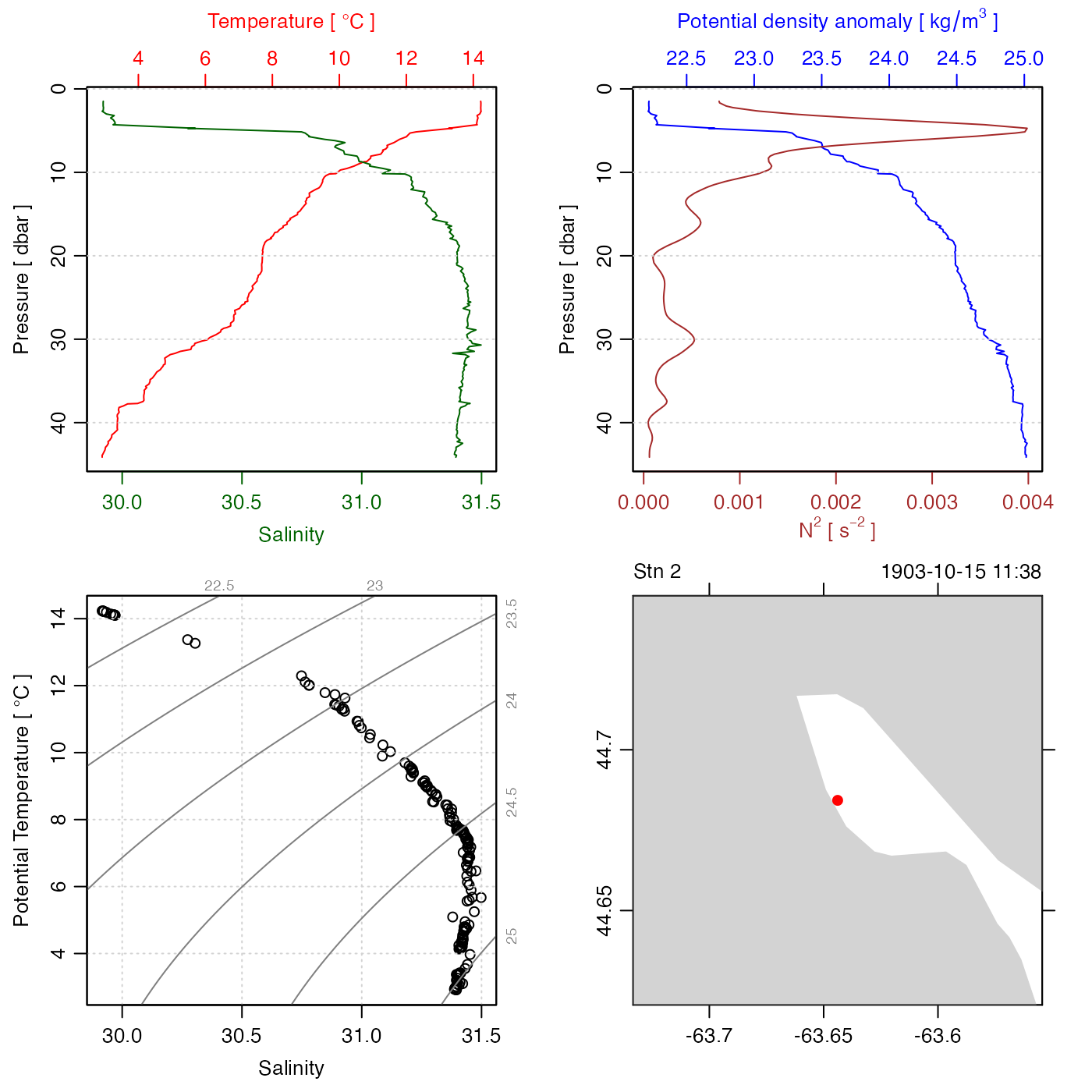Read an oceanographic data file, auto-discovering the file type from the
first line of the file.
This function tries to infer the file type from the first line, using
oceMagic(). If it can be discovered, then an
instrument-specific file reading function is called, with the file
and with any additional arguments being supplied.
Arguments
- file
a connection or a character string giving the name of the file to load.
- ...
arguments to be handed to whichever instrument-specific reading function is selected, based on the header.
- encoding
a character string giving the file encoding. This defaults to
"latin1", which seems to work for files available to the authors, but be aware that a different setting may be required for files that contain unusual accents or characters. (Try"UTF-8"if the default produces errors.) Note thatencodingis ignored in binary files, and also in some text-based files, as well.
Value
An oce object of that is
specialized to the data type, e.g. ctd,
if the data file contains ctd data.
See also
The file type is determined by oceMagic(). If the file
type can be determined, then one of the following is called:
read.ctd(), read.coastline()
read.lobo(), read.rsk(),
read.sealevel(), etc.
Examples
library(oce)
x <- read.oce(system.file("extdata", "ctd.cnv.gz", package = "oce"))
#> Warning: suspicious startTime 1903-10-15 11:38:38 changed to 2003-10-15 11:38:38; see 'start_time' in file header
#> Warning: file has temperature in IPTS-68 so this is stored as-is, but note that [["temperature"]] and sw* functions autoconvert to ITS-90 to match modern conventions
plot(x) # summary with TS and profiles
 plotTS(x) # just the TS
plotTS(x) # just the TS
